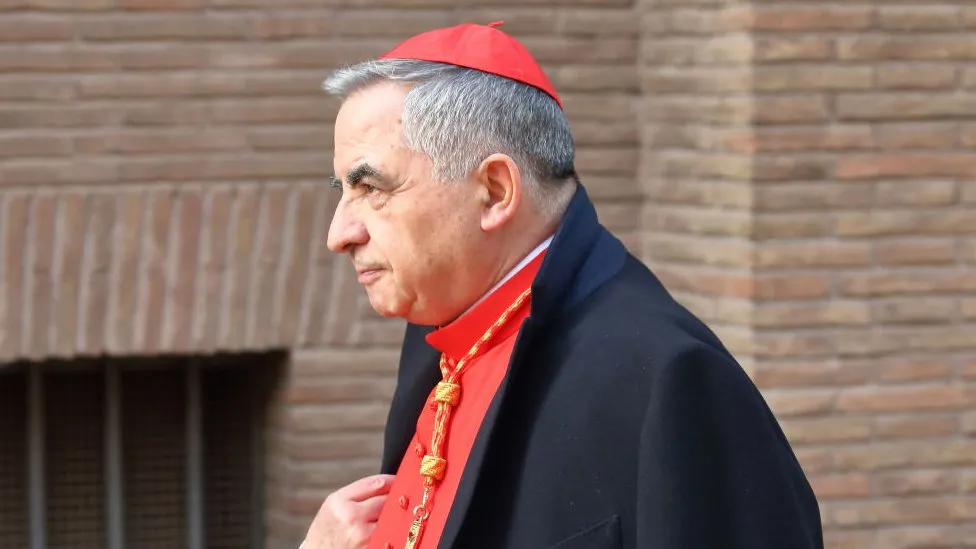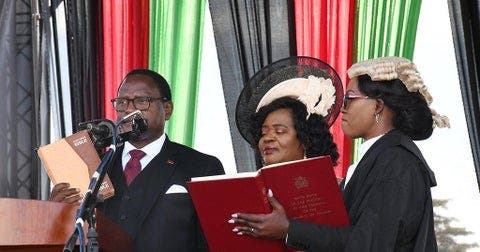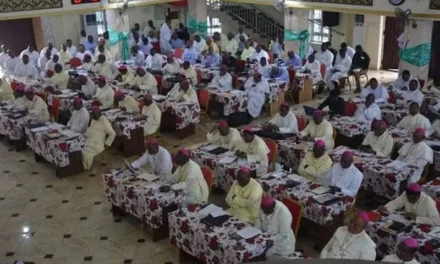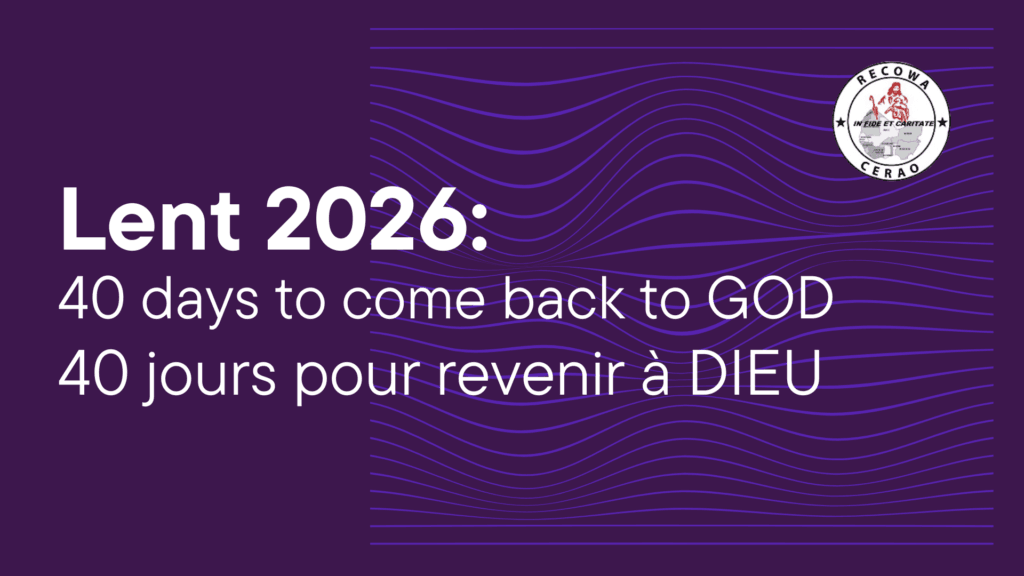The Correspondent of RECOWACERAO NEWS AGENCY, RECONA attached strictly to the city of the Vatican has sent in this breaking News. In the long-awaited denouement of the Vatican’s “trial of the century,” which has been seen widely as a litmus test of Pope Francis’s press for reform, a Vatican tribunal Saturday sentenced Italian Cardinal Angelo Becciu to five years and six months in prison for his role in various financial crimes
Becciu was also fined roughly $8,700 and permanently barred from holding any public office in the Vatican City State. An attorney representing Becciu immediately indicated plans for an appeal. Becciu, 75, was already the first cardinal ever to stand trial on criminal charges before a Vatican civil court, and he now becomes the first ever to be convicted and sentenced. Prosecutors had asked for seven years and three months of prison time for the cardinal.
From 2011 to 2018 Becciu held the all-important position of sostituto, or “substitute,” in the Secretariat of State, making him effectively the pope’s chief of staff, the only figure in the Vatican system with the right to see the pope on a routine basis without an appointment.
Presiding judge Giuseppe Pignatone, a veteran Italian jurist, read the verdicts aloud Saturday in a hall belonging to the Vatican Museums which was converted into a makeshift courtroom in order to accommodate not only public interest but the sheer number of attorneys and support personnel necessary to try such a complex case.
Stretching over two and a half years, the trial featured 86 separate hearings and heard almost 70 witnesses, after what amounted to almost a year of procedural squabbles before the court ever got to the substance of the charges.
The verdicts mark the conclusion of the trial, though not necessarily the last word in the ultimate outcome as it’s theoretically possible that either the prosecution or the defense could appeal the outcome. Depending on the nature of the appeal, it could be heard either by the Vatican City Court of Appeals or by the Vatican’s “supreme court,” known as the Court of Cassation.
All ten defendants denied any wrongdoing, and their attorneys requested full exoneration. The indictments were first handed down in July 2021.
The case pivots on a controversial $400 million land deal in London, which began in 2014 when the Vatican’s Secretariat of State first acquired an interest in a former Harrod’s warehouse in the posh neighborhood of Chelsea. After various twists and turns, the Vatican eventually sold the property for $224 million, resulting in a net loss of around $150 million.
The other defendants included two Italian financiers involved in the deal, a former aide to Becciu, two former officials of the Vatican’s anti-money laundering watchdog, three former officials or advisors to the Secretariat of State, a lawyer representing one of the financiers, and a self-described security consultant tapped by Becciu to help with the liberation of a nun kidnapped by Islamic militants who allegedly used some of the ransom money to buy luxury goods for herself.
The two financiers, Gianluigi Torzi and Raffaele Mincione received sentences of six and five years respectively, while former Vatican official Fabrizio Tirabassi was sentenced to seven years while Enrico Crasso, a financial advisor to the Secretariat of State, also received a seven-year sentence.
Beyond the London affair, Becciu also faced charges on two other fronts: The transfer of roughly $240,000 to a Catholic charity in Sardinia run by his brother, and payouts of around $600,000 for the liberation of a kidnapped religious sister in Mali. According to a Vatican summary of the verdicts. Becciu was found guilty of embezzlement for his role in the London affair, and also on the charges related to Sardinia and the kidnapped nun.
Cecilia Marogna, a self-described security consultant who allegedly spent part of the money for the kidnapped nun on luxury goods for herself, was sentenced to three years.
Two former officials of the Vatican’s anti-money laundering watchdog unit, known at the time as the Financial Information Authority, Swiss lawyer René Brülhart and Italian financial analyst Tomasso Di Ruzza, were acquitted on the more serious charge of abuse of office but convicted for failing to report the London transaction as suspicious. The only defendant completely exonerated was Italian Monsignor Mauro Carlino, a former aide to Becciu.
Numbers help express the staggering complexity of the trial: Some 600 hours in total of hearings, 69 witnesses, 124,563 pages of documents generated, and 2,479,062 separate files presented by the prosecution, in addition to 20,150 pages of documents from the defense and 48,731 from the civil parties to the case.
Part of the controversy surrounding the trial centered on the role of Italian Monsignor Alberto Perlasca, former head of the office for financial administration in the Secretariat of State and thus in a sense the original architect of the London deal, who instead became the star witness for the prosecution.
During the course of testimony, it emerged that Perlasca had been coached in preparing his testimony by a longtime friend and confidante, Genoveffa Ciferri, who had a consultant’s role with the Italian security service, and who in turn had been assisted by Francesca Chaouqui, a former PR consultant and member of papal advisory body who was convicted in the second “Vatileaks” scandal in 2016 for passing confidential documents to journalists.
Chaouqui reportedly blamed Becciu for her downfall in the Vatican, creating the impression that she may have manipulated Perlasca’s testimony for purposes of retribution. Now that verdicts are in, attention may shift to the larger significance of the trial.
While supporters of Pope Francis may argue that the results herald a new era of accountability in which no one is above the law, critics are likely to focus on questions about due process and the rule of law, including complaints that because Francis is both the supreme executive and judicial authority in the Vatican City State, a fair trial was essentially impossible.
Indeed, some observers believe that by injecting himself personally into the case, including issuing four controversial decrees at the beginning of the process which granted prosecutors broad powers without judicial review, Francis effectively revived a sweeping conception of the pope’s authority as a temporal sovereign that most Catholics believed had been abandoned in the 19th century.
- CATHOLIC ARCHBISHOP IN GHANA HAILS POPE LEO XIV AS GOD’S GIFT - 23 mai 2025
- POPE LEO XIV TO APPROVE CANONIZATIONS - 22 mai 2025
- THE EVOLUTION OF PAPAL TRANSPORTATION - 20 mai 2025







